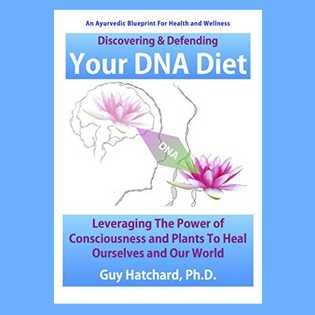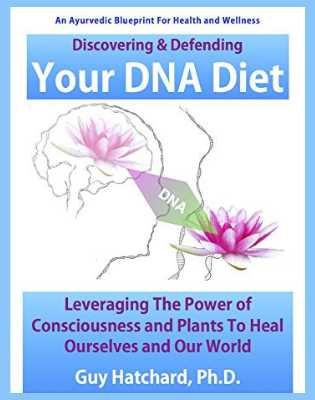Yuval Noah Harari, writing in his 2015 book “Homo Deus—A Brief History of Tomorrow*”, believed that mankind had already conquered famine, plague and war through technology and common sense. Therefore he wrote that we stand on the doorstep of a future of abundance, peace and even physical immortality. According to Hariri, we now understand that hunger, illness and conflict all have technological solutions, thereby we are able to manage them. We have consigned want, fear, violence and death to the history books, and no longer need to appeal to God when disaster strikes.
*This article contains amazon.com affiliate links, which means that IF you click on one of these links and buy something from Amazon, we MAY receive a small commission payment – at no extra cost to you.
But what if Harari was wrong about technology (and certainly about God)? Harari was relying on the increasing longevity in every country in the world (it almost doubled from about 40 to 80 years during the twentieth century), he was unaware that the USA was about to post its first ever decline, with most other developed countries following suit since 2020.
He was writing before the Covid pandemic, the conflicts in the Ukraine and the Middle East, the growing tensions in the far east and the massive polarisation and unrest within western democracies.
Harari was writing before the first wide scale use of nanotechnology in medicine. It was used to package Covid vaccines in order to evade the safeguards of the immune system and penetrate into the inner sanctum of the cell. The extreme dangers nanotechnology poses are only just beginning to surface as this Japanese paper entitled “Real-Time Self-Assembly of Stereomicroscopically Visible Artificial Constructions in Incubated Specimens of mRNA Products Mainly from Pfizer and Moderna: A Comprehensive Longitudinal Study” shows.
Harari was writing before 5G cell phone networks were first rolled out in 2018 using electromagnetic frequencies in common use by our physiology.
Hariri was writing as unlabelled biosynthetic engineered compounds were just beginning to enter the food chain in vast numbers coming on top of the ever growing use of tens of thousands of untested chemical ingredients, additives, flavours and preservatives.
Harari was writing long after the containment of the SARS and Ebola outbreaks and the successful elimination of Smallpox, supposing that all such pathogens would be ultimately banished. He wasn’t to know that, even as he wrote, biotechnologists were busy weaponizing deadly pathogens in porous laboratories around the world through gain of function research.
Harari believed that nuclear war had become unthinkable. He was writing just before every nuclear nation in the world decided to ramp up production of atomic weapons.
Harari’s theme is familiar to anyone taking a sober look at technological futurists:—the golden age is always just around the corner, we have almost arrived, so hang in there and keep funding the technocrats.
Hariri’s faith in the future was built on his adoration for technology, especially medical technology, but insight into medical statistics was lacking in his research. A close look into the world of health statistics reveals that the world might be getting more unhealthy, not better.
Last week the NZ Herald led with an article “Healthcare crisis: Desperate patients queue from 6am at Ōtara clinic for doctor visits“. When these people finally get to see a doctor, they will eventually be sent home or admitted to hospital with a specific diagnosis and a recommended drug. Unfortunately, many will be joining an estimated 60% of the adult population now suffering from chronic illness.
The number of people with hypertension aged 30–79 years doubled between 1990 to 2019, from 648 million in 1990 to 1278 million in 2019, despite stable global age-standardised prevalence.
Annual new cancer cases in the USA increased by 36.3 % in between 2000 and 2021.
The number of people with diabetes in the world rose from 108 million in 1980 to 422 million in 2014. A massive rise of 290%
In 2000, around 14 million people died from cardiovascular diseases globally, while in 2019, that figure was almost 18 million, up by 29%.
Kidney disease is the fastest-growing noncommunicable disease in the U.S. It currently affects more than 1 in 7 (or 14%) of American adults. There were about 135,000 Americans newly diagnosed with kidney failure in 2021.
It is not just the incidence of these diseases that is increasing, mortality is also on the rise. A paper published last week entitled Increasing Mortality Rates in the US, but Not From COVID-19 reports:
“Mortality from neurologic diseases (notably Alzheimer disease) has been increasing for decades, as has mortality from diabetes, likely a result of the obesity epidemic. Among young and middle-aged adults, mortality from hypertensive diseases and kidney failure has been increasing for 2 decades and mortality from other forms of heart disease (eg, heart failure) has been increasing since 2012.”
The study correctly points out that many diseases are associated with the rapidly growing global epidemic of obesity. In 2022, 1 in 8 people in the world were living with obesity. Worldwide adult obesity has more than doubled since 1990, and adolescent obesity has quadrupled. In 2022, 2.5 billion adults (18 years and older) a whopping 40% of the population cohort were overweight. Of these, 890 million were living with obesity.
Therefore it was no surprise to read an article in the UK Daily Telegraph this week entitled “Ozempic hailed as ‘fountain of youth’“. If you read my blog regularly, you will be aware that weight loss drug sensation Ozempic is plagued with unacceptably high levels of serious adverse effects, but this hasn’t stopped the PR hype.
The Telegraph article reports “Ozempic could offer “the fountain of youth” and turn back the clock on a host of diseases, scientists have found. In an unprecedented development, 11 studies published in one day found that the new class of semaglutide medications have “far-reaching benefits” beyond what was ever imagined. The findings will put pressure on the NHS to roll the drugs out much more widely, like statins. The studies suggest millions of people, including those who are not overweight, could potentially benefit from the drugs to improve quality of life, possibly saving the health service much-needed funds.”
Wow, that is quite a lot to digest (if you will forgive the pun). Ozempic suppresses appetite and is currently used in the treatment of diabetes and obesity. The article reported that research on Semaglutide, the active ingredient in Ozempic, found other improvements in conditions including high blood pressure and cardiac and kidney disease, all of which are conditions exacerbated by obesity.
At this point, the article went into hyperdrive fantasising that semaglutide injections will reverse the ageing process by slowing cognitive decline and brain shrinkage, thereby preventing Alzheimer’s disease and benefiting Parkinsons. Dr Jeremy Samuel Faust, from Harvard Medical School, said the injections were so powerful they were “akin to a vaccine” which would only get stronger over time (sound familiar?).
In contrast to many articles sounding the alarm on Ozempic adverse effects, the Telegraph piece was entirely positive, it glowed with hope—the golden age is almost upon us, if only the government will agree to fund Ozempic injections for us all at $1550 per month.
You could tell the author was overwhelmed by the enthusiasm of the well funded scientists presenting the findings of the 11 papers at the European Society of Cardiology congress in London. No doubt Novo Nordisk, the patent holders of Ozempic, the most profitable drug in history, were rubbing their hands in glee.
The article was mainly based upon a three year trial of 8803 people aged 45 and over who were given weekly jabs which resulted in a 23% lower death rate from cardiovascular disease when compared to controls taking a placebo. The details of the trial results, published in the New England Journal of Medicine in November 2023 under the title “Semaglutide and Cardiovascular Outcomes in Obesity without Diabetes“, do not paint such a rosy sounding picture: “Adverse events leading to permanent discontinuation of the semaglutide injections occurred in 1461 patients (16.6%)”
So is the hype justified? It is important to realise that most of the claims in the Telegraph article are based on extrapolated hope, and crucially all of the claims must be weighed against the serious adverse effects of semaglutide drugs, especially the difficulties associated with long term use. There are also statistical reasons to question the hype.
Just consider, if you have diseases whose incidence is growing very rapidly, you can complete drug studies which show an improvement in outcomes which are still dwarfed by the rapid rise in incidence. Let’s explain how this works with an analogy. Suppose you have debt which has to be repaid at $1000 per month. You are getting into difficulty, so you go to a loan shark who offers to lend you $200 per month to help out. You don’t read the small print which reveals that the repayments to the loan shark will soon top $300 per month. In other words you are worse off.
In this analogy, the debt repayments are like the increasing incidence of a disease, the $200 a month loan is like a palliative pharmaceutical drug and the $300 a month required by the loan shark is like the adverse effects of the drug. A study might report a small benefit of a drug, but fail to take into account the increasing rate of incidence of the disease and the long term adverse effects on the drug. Despite this, the drug is hailed as a ‘breakthrough’, whereas it will eventually make the problem worse.
Obesity, diabetes, high blood pressure, kidney disease, and heart disease are all conditions that are exacerbated by modern lifestyles. Changing these lifestyles is well known to be the truly effective way to control their incidence without any downside. But in the world of pharmaceutical hegemony, doctors have given up on changing lifestyles, gaslighting the victims as weak-willed, putting any attempt to change habits into the too hard basket.
Behind this is something else going on, the pernicious design, production and marketing of foods that are known to damage health by giant corporations. These include foods loaded with sugars, unhealthy fats, synthetic flavours, additives, processing agents and preservatives. Very often they are labelled as ‘natural’ by the food manufacturers in a cynical attempt to create a false aura of healthy choices for consumers. The close relationships between regulators and producers ensure that this deadly paradigm is never seriously challenged.
It appears from the frightening health statistics we reported above that immune systems are collapsing under the weight of unhealthy food, lifestyles and pollution. The matter has reached a tipping point with the introduction since 2015 of biotechnologies—the last straw that is breaking the camel’s back. The addition of one more biotech medicine is not going to solve the problem, it is simply driving the growing problem over the edge.
Modern medicine is offering diagnoses of specific diseases but overlooking the whole system collapse of health that is behind the epidemic of sickness sweeping the world. When the immune system starts to fail us, the most significant vulnerability in our personal health profile fails first. Identifying that is a useful step, but failing to address the systemic immune failure behind the runaway proliferation of specific disease types is a death sentence.
To tackle the challenge to our immune system, a holistic approach is required. This will involve education, regulation, research and fully supportive mentoring involving diet, safe food standards, ingredients, food preparation, exercise, and removal of environmental pollution. As we have reported at length in many articles, there are already traditional sophisticated preventive health systems like Ayurveda and Chinese medicine whose principles can be easily incorporated into medical education programmes. They promote balance and restore intelligence to physiology. Research shows that most effective among their multi-pronged strategies are systems of meditation which promote the holistic experience of healing consciousness.
Rather than promoting proven natural approaches to improve health outcomes, our government is clinging to the futurist’s fantasies. They are about to deregulate biotechnology. This will further pollute our food and our environment, not just with chemical toxins, but with biotoxins—mutated genetic structures which can spread without limit and never be recalled. Our right to choose our diet and way of life is under threat. The International Genetic Charter has simple terms spelt out in a few sentences containing the safeguards necessary to protect human life from genetic degradation. Please take a couple of minutes to sign up to The International Genetic Charter here. Our aim is to use the charter to campaign for amendments strengthening and updating the Bill of Rights.






